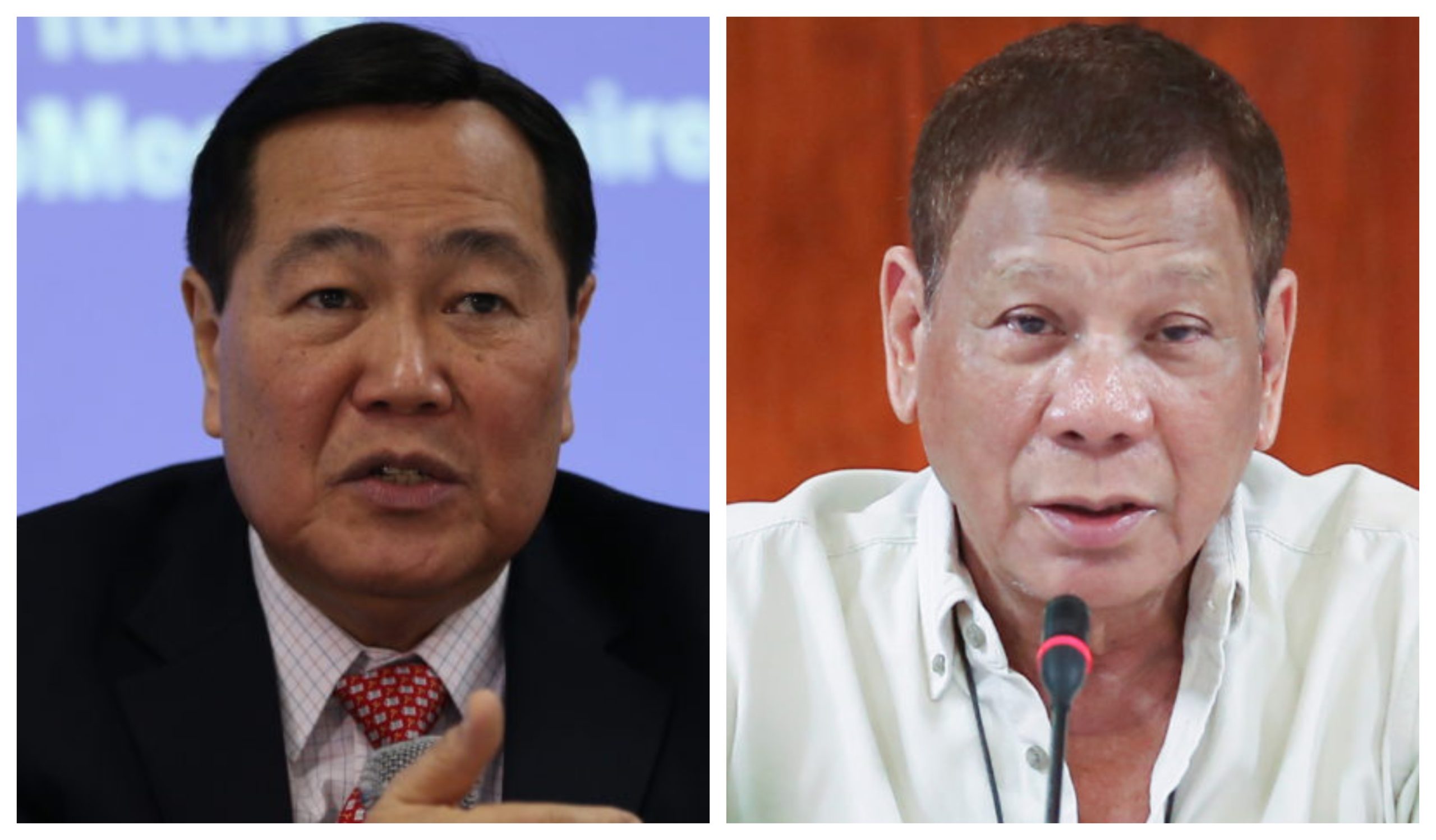Carpio: ICC warrant may be out by September

This combination of file photos shows retired Supreme Court Justice Antonio Carpio and former President Rodrigo Duterte. —Inquirer and presidential file photos
MANILA, Philippines — Will the “day of reckoning” for agents of the Duterte administration’s bloody drug war come next month?
Retired Supreme Court Justice Antonio Carpio said on Tuesday night that the investigation of the International Criminal Court’s (ICC) prosecutor into the brutal campaign against illegal drugs had reached a pivotal point.
“I think the day of reckoning is coming closer because what I’m hearing is that a warrant of arrest will be issued by the ICC sometime in September,” Carpio said in an interview on the vlog of political analyst and Inquirer columnist Richard Heydarian.
Carpio, however, did not say who his sources were.
READ: PH no longer ICC member but remains committed to Interpol – Remulla
Heydarian said he received similar information about the timeline when he recently visited The Hague in the Netherlands, where the international tribunal is based.
READ: Dela Rosa expresses alarm over ICC remarks of Remulla, Guevarra
“That was the question I had in The Hague the other month … I know it’s gonna come later this year, but tell me before [filing of the certificate of candidacy] or not. And somehow I got similar answers,” he said.
The period of filing of certificate of candidacy for aspirants in the 2025 elections has been set from Oct. 1 to Oct. 8, based on the Commission on Elections’ calendar of activities.
‘Element of surprise’
Kristina Conti, one of the lawyers representing the families of drug war victims, cautioned against any public announcements regarding the possible issuance of arrest warrants against the identified suspects in the ICC prosecutor’s investigation.
“There’s sensitivity in the actual arrest. It’s better to not announce the issuance so that there will be [an element of] surprise,” Conti told the Inquirer, refusing to confirm or deny the supposed schedule of arrests.
Former Sen. Antonio Trillanes IV, one of the parties who filed a complaint in the ICC in connection with the drug war killings, earlier told the Inquirer he was certain that arrest warrants would be released within the year.
The investigation stemmed from allegations that former President Rodrigo Duterte and his lieutenants committed crimes against humanity by waging a ruthless war on drugs, both as the country’s Chief Executive and as mayor of Davao City.
The drug war killed some 6,000 people, based on official data, but rights watchdogs placed the actual number at more than 20,000, citing underreporting or falsified records.
In July, Trillanes made public a supposedly confidential document from the ICC’s Office of the Prosecutor tagging as “suspects” former Philippine National Police chief and now Sen. Ronald “Bato” dela Rosa, retired PNP chief Oscar Albayalde, former Criminal Investigation and Detection Group chief Romeo Caramat Jr., former National Police Commission chief Edilberto Leonardo, and former PNP chief intelligence officer Eleazar Mata.
Solicitor General Menardo Guevarra later confirmed that his office was having communications with the ICC, saying the government would not assist them in interviewing the police officials but would not stop them from doing so.
Justice Secretary Jesus Crispin Remulla also promised not to block the International Criminal Police Organization, or Interpol, from arresting anyone on the ICC’s behalf.
“We are not in the business of blocking any movement at Interpol,” he said.
Disengagement policy
Conti said such statements already constituted “official acknowledgment” that the ICC investigation would proceed “even without the government’s assistance.”
But she added that while the drug war victims “appreciate the minimum commitment” expressed by the incumbent administration, they still hoped that President Marcos would reverse his “declared policy of disengagement.”
“It would certainly be more favorable if the ICC secures full cooperation from the Philippines, given the unreasonable positions and even promises of violence from certain persons likely being considered for trial by the court,” Conti told the Inquirer.
The Philippines officially left the ICC in 2019, a year after Duterte unilaterally ordered the country’s withdrawal from the Rome Statute, the 2002 treaty that established the international tribunal.
The ICC has maintained that its inquiry in the context of the drug war remains within its jurisdiction, as most of the alleged crimes occurred when the country was still a member of the court, from Nov. 1, 2011, to March 16, 2019.